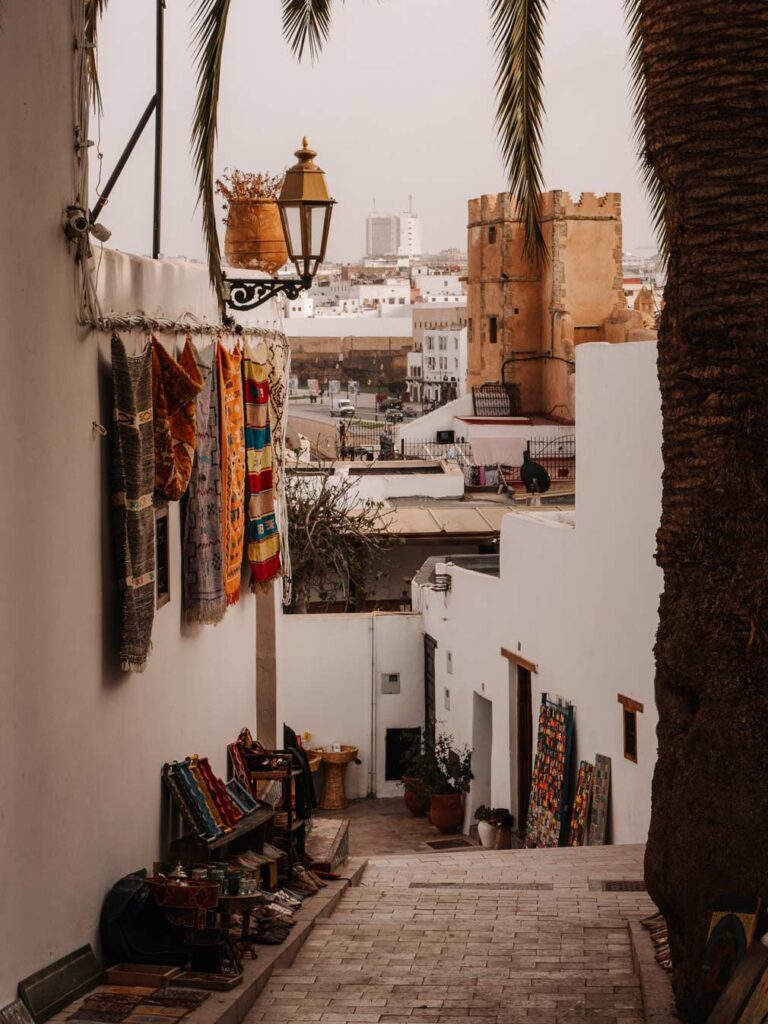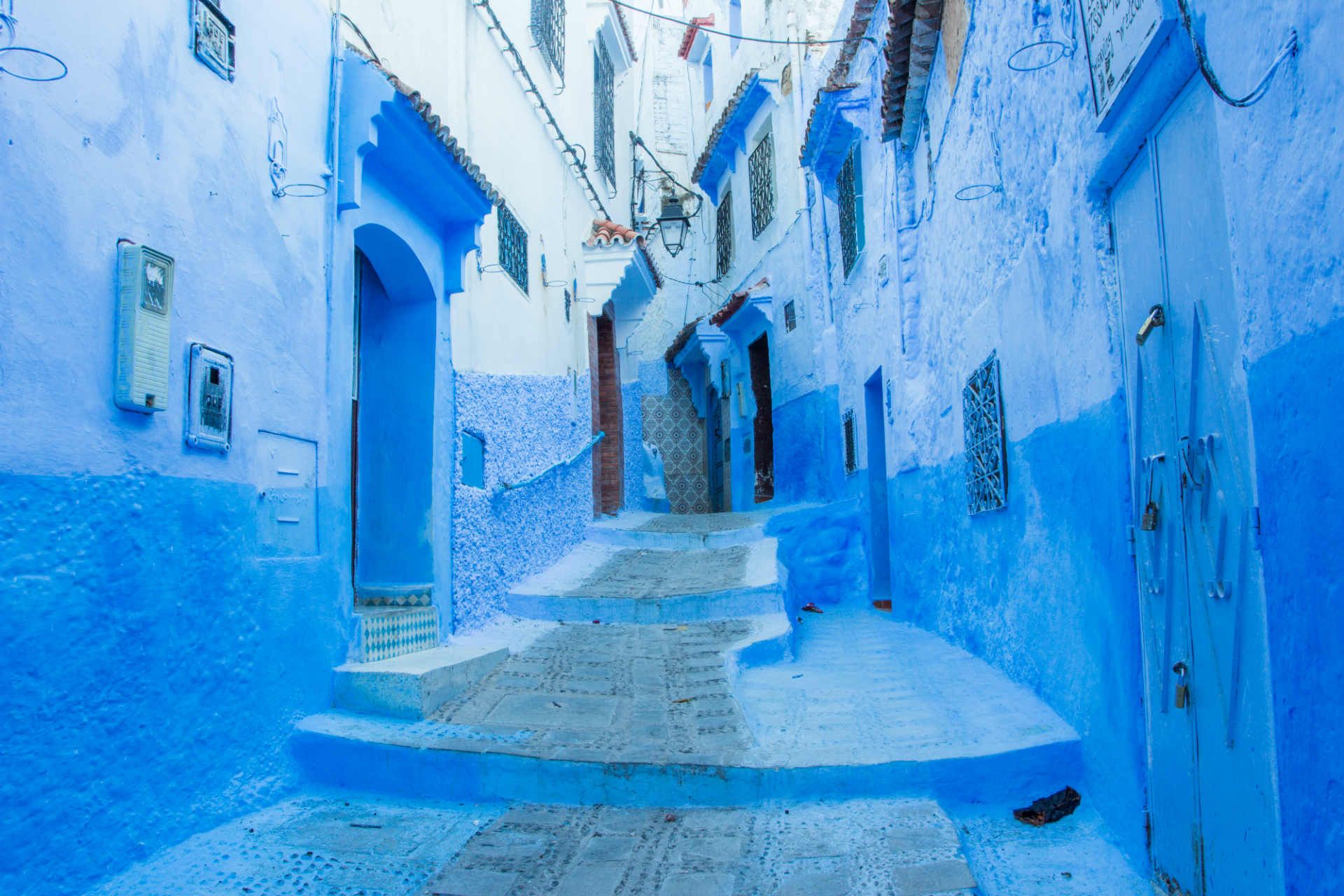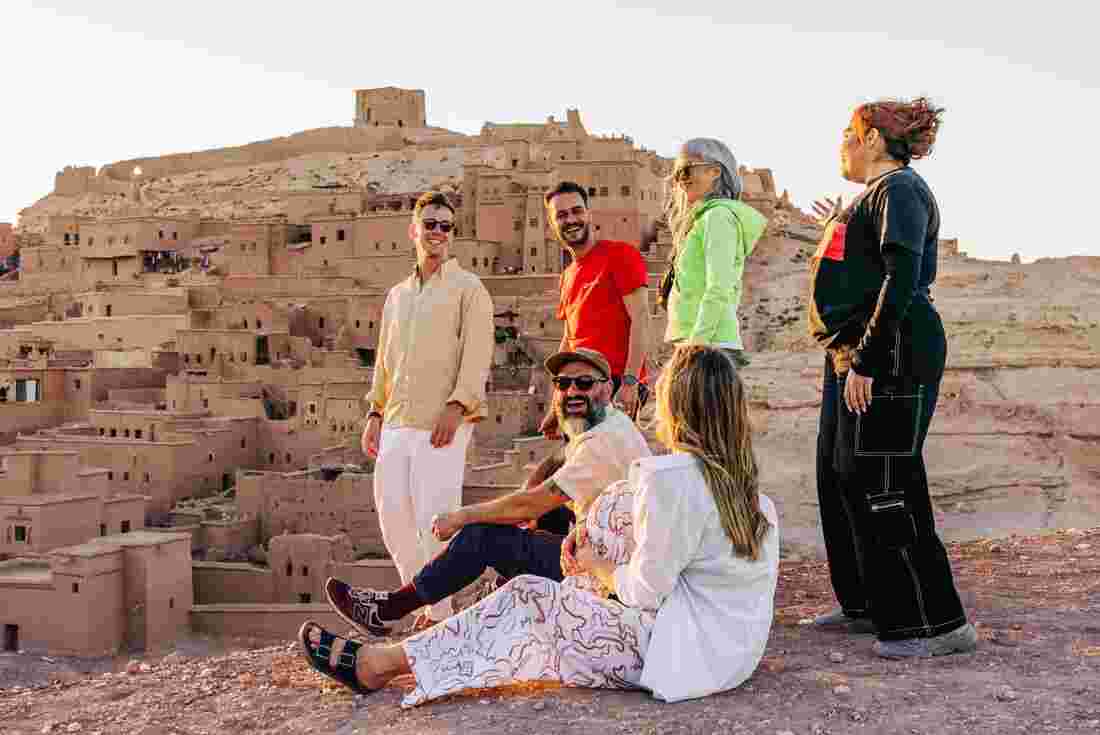Beat the Crowds! When to Experience Morocco at its Best

Introduction
Morocco is a beautiful country with a unique blend of African, Arab, and European influences. From its bustling cities to picturesque landscapes, there is something for everyone to enjoy. Planning a trip to Morocco can be an exciting and memorable experience, but it is important to consider the timing of your visit. In this blog post, we will explore the overview of Morocco as a tourist destination and the importance of choosing the right time to visit.
Overview of Morocco as a tourist destination
Morocco has a rich history, vibrant culture, and diverse landscapes. Morocco has it all if you are interested in exploring ancient ruins, wandering through bustling markets, or relaxing on pristine beaches. Here are a few highlights of what you can expect when visiting this enchanting country:
- Historical attractions: Morocco is home to numerous historical sites, such as the famous medinas of Marrakech and Fez, the Roman ruins of Volubilis, and the stunning Kasbah Ait Ben Haddou.
- Cultural experiences: Immerse yourself in Moroccan culture by visiting local markets, trying traditional cuisine, and enjoying authentic music and dance performances.
- Natural beauty: From the majestic Atlas Mountains to the golden sand dunes of the Sahara Desert, Morocco offers breathtaking landscapes that are perfect for outdoor enthusiasts.
- Coastal charm: Explore the vibrant coastal cities of Essaouira and Casablanca, known for their beautiful beaches, bustling ports, and charming architecture.
Importance of choosing the right time to visit
The time of year you choose to visit Morocco can greatly impact your experience. Here are a few factors to consider when deciding on the best time to plan your trip:
- Weather: Morocco has a Mediterranean climate, with hot summers and mild winters. The coastal regions have a more temperate climate, while the inland areas experience greater extreme temperatures.
- Peak tourist season: The peak tourist season in Morocco is from April to October, when the weather is mild and dry. This is also when popular attractions can be crowded, and prices may be higher.
- Festivals and events: Morocco hosts various festivals throughout the year, such as the Marrakech International Film Festival and the Gnaoua World Music Festival. Attending these events can add an extra layer of excitement to your trip.
- Ramadan: It is important to note that Ramadan, the Islamic holy month, can affect your travel plans. During this time, many businesses and attractions may have altered opening hours, and it is important to respect local customs and traditions.
Morocco is a captivating destination that offers a wide range of experiences for travellers. By considering the overview of Morocco as a tourist destination and choosing the right time to visit, you can ensure a memorable and enjoyable trip. So pack your bags and get ready to immerse yourself in the captivating beauty of Morocco.

Shoulder Seasons: Spring and Autumn (March-May, September-November)
Weather and climate during spring and autumn
During the shoulder seasons of spring and autumn, Morocco experiences pleasant weather and moderate temperatures. In spring (March to May), the country is blooming with colourful flowers, and the landscape is vibrant and lush. Autumn (September to November) brings cooler temperatures and a slight chance of rainfall, making it an ideal time to explore the historic sites and natural beauty of Morocco.
Benefits of visiting Morocco during shoulder seasons
Choosing to visit Morocco during the shoulder seasons has several advantages:
- Milder temperatures: During the spring and autumn months, the weather in Morocco is comfortable, with temperatures ranging between 20°C to 30°C (68°F to 86°F). This makes it easier to explore the cities, visit outdoor attractions, and engage in outdoor activities without being too hot or too cold.
- Avoiding crowds: Unlike the peak tourist season, the shoulder seasons offer a more peaceful and less crowded experience. You can explore popular attractions, such as the medinas of Marrakech and Fez, and enjoy a more authentic interaction with locals.
- Better prices: Accommodation, flights, and tours are generally more affordable during the shoulder seasons compared to the peak tourist season. This means you can get the most value out of your money and perhaps indulge in some extra experiences or souvenirs.
- Festivals and events: The shoulder seasons in Morocco coincide with several exciting festivals and events. You can immerse yourself in the vibrant atmosphere of the Marrakech International Film Festival or enjoy the music and cultural performances at the Gnaoua World Music Festival.
Visiting Morocco during the shoulder seasons of spring and autumn offers favourable weather conditions, fewer crowds, and unique festival experiences. Whether you choose to explore the historical sites, indulge in Moroccan cuisine, or simply enjoy the natural landscapes, you can make the most of your trip by selecting the right time to visit.

Winter in Morocco (December-February)
Weather conditions and temperatures during winter
During the winter months in Morocco (December to February), the weather varies across different regions of the country. Along the coast, temperatures are relatively mild, ranging from 10°C to 20°C (50°F to 68°F). Inland cities such as Marrakech and Fez experience cooler temperatures, with lows reaching around 5°C (41°F) at night. In the mountains, especially in the High Atlas range, temperatures can drop below freezing and even receive some snowfall.
Unique experiences and festivals during winter
While winter is considered the off-peak tourist season in Morocco, there are still plenty of unique experiences and festivals to enjoy:
-
Winter hiking and skiing: The winter months provide an excellent opportunity to explore the stunning mountain landscapes of Morocco. You can embark on hiking trails in the High Atlas Mountains, taking in breathtaking vistas and enjoying the crisp mountain air. If you're a fan of winter sports, you can also try skiing or snowboarding in the popular ski resorts of Oukaïmeden and Ifrane.
-
Traditional Moroccan festivals: Winter is a festive time in Morocco, with various cultural celebrations happening throughout the country. One notable event is the Imilchil Marriage Festival, also known as "September Romance." This unique festival brings together Berber communities for a week-long celebration of music, dance, and traditional weddings.
-
Winter souks and shopping: Exploring the vibrant souks (markets) of Marrakech, Fez, and other cities is a must when visiting Morocco. During the winter months, you can wander through the bustling alleys, admiring colourful displays of spices, textiles, ceramics, and other local crafts. Bargaining for a good deal is all part of the experience!
While winter may not be the peak tourist season in Morocco, it offers its own charm and unique experiences. From exploring the snowy peaks of the High Atlas Mountains to immersing yourself in traditional festivals and shopping in lively souks, there is plenty to enjoy during the winter months. Just remember to pack layers and be prepared for varying temperatures depending on the region you visit.

Summer in Morocco (June-August)
Hot weather and high temperatures during summer
During the summer months in Morocco (June to August), the weather can be quite hot and dry, especially in inland areas and the desert regions. Coastal cities have relatively cooler temperatures, ranging from 20°C to 30°C (68°F to 86°F). However, inland cities like Marrakech and Fez can experience scorching temperatures, with highs reaching up to 40°C (104°F) or even higher. It's important to stay hydrated and take necessary precautions to protect yourself from the sun.
Tips for beating the summer crowds
Summer is considered the peak tourist season in Morocco, so it's essential to plan ahead and make necessary arrangements to avoid the crowds:
- Book accommodations in advance: With the high influx of tourists during summer, it's advisable to book your accommodations well in advance to secure your preferred options and avoid last-minute hassles.
- Visit popular attractions early or late in the day: To avoid crowds, plan to visit popular attractions either early in the morning or later in the afternoon. This way, you can enjoy the sights without the heavy crowds and have a more enjoyable experience.
- Explore off-the-beaten-path destinations: Instead of sticking to the popular tourist destinations, consider exploring lesser-known towns and villages in Morocco. These hidden gems offer a more authentic experience and are less crowded.
- Stay hydrated and protect yourself from the sun: With the high temperatures during summer, it's crucial to stay hydrated by drinking plenty of water throughout the day. Additionally, wearing sunscreen, a hat, and lightweight, breathable clothing can help protect you from the intense sun rays.
By following these tips, you can make the most of your summer visit to Morocco and have a more enjoyable and comfortable experience.

Ramadan and Eid al-Fitr
Overview of Ramadan and its significance
During the holy month of Ramadan, Muslims around the world observe a period of fasting and spiritual reflection. In Morocco, Ramadan is an important time, and the country takes on a different vibe during this period. Muslims fast from sunrise to sunset, abstaining from food, drink, smoking, and other physical needs. It is a time for self-discipline, introspection, and acts of charity.
Pros and cons of visiting Morocco during Ramadan
Visiting Morocco during Ramadan can be a unique and interesting experience, but it's important to consider the pros and cons:
Pros:
- Cultural immersion: Ramadan provides an opportunity to witness and learn about Moroccan culture and traditions in a deeper way. You can observe the breaking of the fast at sunset and partake in the festivities and special meals that follow.
- Less crowded attractions: Many travellers choose to avoid visiting during Ramadan, which means fewer tourists and smaller crowds at popular attractions. This can result in a more intimate and peaceful experience.
- Festive atmosphere: As the sun sets, the cities come alive with vibrant street markets and lively communal meals. There is a sense of joy and celebration in the air as people gather with family and friends.
Cons:
- Reduced availability: During Ramadan, some businesses and establishments may have limited operating hours or be closed altogether. This can affect your itinerary and make it harder to find certain services.
- Restaurants and cafes: While some restaurants remain open during Ramadan, others may only serve food after sunset. It's important to plan your meals accordingly and be aware of local customs and etiquette regarding eating in public.
- Limited nightlife: Nightlife and entertainment activities may be less active during Ramadan, as people focus on prayer and reflection. If you are looking for a vibrant nightlife scene, it may be quieter during this time.
Overall, visiting Morocco during Ramadan can offer a unique cultural experience, but it's important to be aware of the changes and limitations that come with it. With proper planning and respect for local customs, you can have a fulfilling and memorable visit.

Major Holidays and Festivals
Celebrations and events during major holidays
Major holidays and festivals in Morocco are vibrant and full of cultural traditions and celebrations. Here are some of the key events you can experience during these festivities:
-
Eid al-Fitr: This holiday marks the end of Ramadan and is celebrated with feasts, prayers, and exchanging of gifts. It is a joyous time when families come together to celebrate the completion of the month of fasting.
-
Eid al-Adha: Also known as the Feast of Sacrifice, this holiday commemorates Ibrahim's willingness to sacrifice his son as an act of obedience to God. It is marked by the sacrifice of an animal, typically a sheep or goat, and the meat is distributed to the less fortunate.
-
Independence Day: Celebrated on November 18th, this holiday marks Morocco's independence from France in 1956. The day is filled with parades, music, and fireworks, showcasing the pride and patriotism of the Moroccan people.
-
Mawazine Festival: This is one of the largest music festivals in Africa, held annually in Rabat. It features performances by international and Moroccan artists, covering a wide range of genres from traditional Moroccan music to pop and rock.
Recommended times to experience Moroccan festivals
To make the most of your visit to Morocco and experience the vibrant festivals, here are some recommended times to plan your trip:
-
Ramadan: If you want to immerse yourself in the Moroccan culture and witness the unique traditions of Ramadan, visiting during this holy month is highly recommended. However, be prepared for the changes in operating hours and limited availability of certain services.
-
Eid al-Fitr: Joining in the celebrations of Eid al-Fitr can be a memorable experience, with feasts, prayers, and the bustling atmosphere as families come together. Make sure to book accommodation in advance and plan your visit accordingly to fully enjoy the festivities.
-
Mawazine Festival: If you are a music lover, planning your visit during the Mawazine Festival will allow you to enjoy a diverse range of performances by renowned artists. Check the festival dates and lineup in advance to plan your trip around this event.
-
Independence Day: To witness the patriotic spirit of the Moroccan people and experience the parades and festivities, visiting during Independence Day on November 18th is a great choice.
Make sure to check the specific dates for each festival and plan your itinerary accordingly to ensure you don't miss out on these vibrant celebrations during your visit to Morocco.

Considerations for Specific Activities
Best time for hiking in the Atlas Mountains
If you're an outdoor enthusiast and love hiking, the Atlas Mountains in Morocco offer breathtaking trails and stunning landscapes. Here are the best times to plan your hiking adventure:
-
Spring (March to May): This is considered the ideal time for hiking in the Atlas Mountains, as the weather is mild and the valleys are lush with colourful flowers and greenery. The temperatures are pleasant, making it comfortable for long hikes.
-
Fall (September to November): Another great time for hiking, the fall season offers cooler temperatures and beautiful autumn colours in the mountains. The trails are less crowded compared to the peak summer season, allowing you to immerse yourself in nature.
-
Winter (December to February): If you're up for a challenge and don't mind the colder temperatures, winter can also be a rewarding time for hiking in the Atlas Mountains. The snow-capped peaks create a magical atmosphere, and you can enjoy the solitude of the trails.
Ideal months for exploring the Sahara Desert
The Sahara Desert is a must-visit destination in Morocco, with its vast expanse of golden sand dunes and unique desert experiences. Here are the ideal months to plan your exploration:
-
Spring (March to May): During these months, the temperatures in the desert are mild, making it comfortable for activities like camel trekking and camping. The desert is also less crowded, allowing you to fully enjoy the tranquillity and beauty of the landscape.
-
Fall (September to November): Similar to the spring season, fall offers pleasant temperatures in the Sahara Desert. The weather is not too hot, and you can witness mesmerizing sunsets and starry nights in the desert.
It's important to note that the summer months (June to August) can be extremely hot in the Sahara Desert, with temperatures reaching well over 100 degrees Fahrenheit. Extended outdoor activities are not recommended during this period, but short visits can still be enjoyable if you plan accordingly.

Avoiding Tourist Crowds
Tips for choosing less crowded destinations in Morocco
When planning your trip to Morocco, it's essential to consider the crowd levels in popular tourist destinations. Here are some tips to help you choose less crowded destinations:
- Explore lesser-known cities: Instead of heading straight to famous cities like Marrakech or Casablanca, consider visiting smaller cities such as Chefchaouen, Essaouira, or Fes. These cities offer unique cultural experiences and attract fewer tourists.
- Visit during the off-peak season: The summer months (June to August) tend to be the busiest in Morocco. If you want to avoid the crowds, consider visiting during the spring (March to May) or fall (September to November) seasons. The weather is still pleasant, and tourist sites are less crowded.
- Explore rural areas: Morocco's countryside is filled with hidden gems waiting to be discovered. Consider venturing off the beaten path and exploring rural areas like the Atlas Mountains or the Draa Valley. These areas offer stunning landscapes and authentic experiences away from tourist crowds.
Off-the-beaten-path experiences
While Morocco is well-known for its iconic attractions, there are also plenty of off-the-beaten-path experiences that you can enjoy. Here are some recommendations:
| Destination | Experience |
|---|---|
| Merzouga | Experience a sunrise or sunset camel trek in the mesmerizing sand dunes of Erg Chebbi. |
| Dades Valley | Explore the stunning rock formations and gorges on a hike through the Dades Gorges. |
| Ouarzazate | Discover the film studios and famous Kasbahs in this charming desert city. |
By opting for these off-the-beaten-path experiences, you can expect fewer crowds and a more authentic Moroccan experience. Remember to respect local customs and traditions during your journey.
